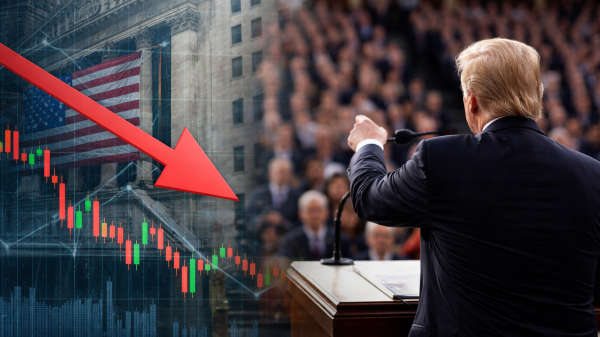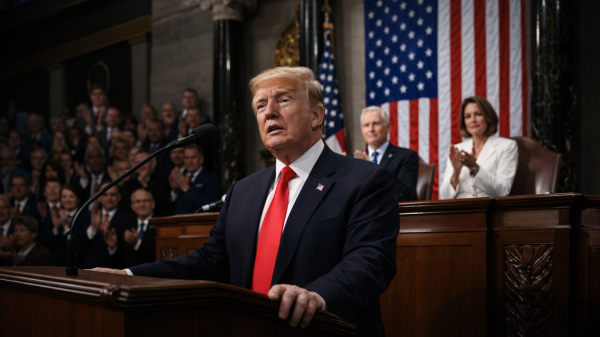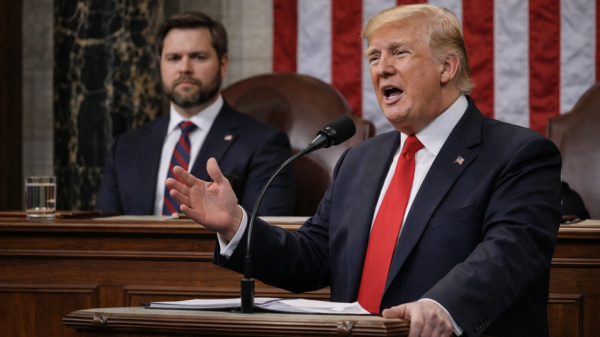Asian stock markets kicked off Friday’s session with a clear sense of unease, declining for a sixth consecutive day in what has become their longest losing streak of the year.
The cautious mood was driven by President Donald Trump’s announcement of new, specific tariff rates, a move that is overshadowing solid earnings from US megacap tech firms and curbing investor risk appetite. Indian benchmarks, like the Sensex, are also set to open lower.
The latest chapter in the ongoing US trade saga unfolded on Thursday, as the White House announced that President Trump will maintain a minimum global tariff of 10%.
Crucially, it was also revealed that imports from countries with significant trade surpluses with the US will face duties of 15% or higher. This announcement followed Trump raising the tariff levies on Canada to 35%, while Switzerland was hit with a 39% rate.
These moves signal that concerns over tariffs and their impact on economic growth are beginning to outweigh the powerful AI-driven optimism that has recently buoyed megacap tech stocks.
While artificial intelligence remains a pillar of long-term bullishness, investors are now bracing for potential trade disruptions as the US and its key trading partners weigh these new levies.
The announcement provided numbers, but not necessarily the clarity that businesses and investors crave.
“The announcement brings clarity on paper, but uncertainty in practice,” commented Charu Chanana, chief investment strategist at Saxo Markets.
“While markets now know the numbers, the lack of a clear framework behind these tariffs — and the seemingly arbitrary rates — only reinforces the sense of policy unpredictability. This makes it harder for businesses and investors to plan ahead.”
A sea of red across the region
The negative sentiment was reflected across Asian bourses. The MSCI Asia Pacific Index dropped 0.5%, led by significant losses in South Korea. Contracts for the US S&P 500 fell 0.3%, while those for European stocks retreated 0.4%.
South Korean stocks extended their decline for a second consecutive session. As of 9:40 a.m. local time, the Kospi index had plunged 2.3%, and the small-cap Kosdaq index was trading 2.8% lower.
The declines were broad-based, hitting the technology, manufacturing, retail, financial, and gaming sectors. Among the index heavyweights, Samsung Electronics was last seen down 0.56%, while SK Hynix declined by a more substantial 4.57%.
Stocks in Mainland China also started the day lower, with the CSI 300 flat as of 10:02 a.m. local time. Meanwhile, Hong Kong’s Hang Seng Index moved down 0.16%.
Indian markets: Sensex poised for a weaker start
Indian benchmark indices, the Nifty and Sensex, are set to open lower, starting the new month on a cautious note as the fresh tariff actions by the US weigh on global sentiment.
A surprise move saw Donald Trump raise import duties on Canadian goods to 35 percent from 25 percent, a development that is keeping global investors on edge.
This follows a choppy session on Dalal Street, where investors were also weighing the impact of a 25 percent tariff and penalty imposed by President Trump on India.
After opening with one percent losses, the benchmark Nifty 50 and Sensex had initially clawed back their gains to trade in the green. However, a final hour of selling pressure drove the headline indices back into the red, a sign of the underlying nervousness in the market.
Currency markets react: dollar firms, regional currencies weaken
In currency markets, the US dollar was little changed on Friday after posting its best month of the year in July. Asia-Pacific currencies mostly depreciated against the greenback as President Trump modified the tariff rates.
The US dollar index, which measures the greenback against six major currencies, rose 0.11% to 100.73 as of 10:40 a.m. Singapore time.
The Japanese yen, traditionally viewed as a safe-haven asset, was flat against the dollar at 150.75. The Australian dollar was also largely unchanged.
However, other regional currencies felt the pressure. China’s offshore yuan weakened by 0.11% against the dollar to 7.2083, after dropping to a near two-month low earlier in the session. The Taiwanese dollar depreciated by 0.35%, and the South Korean won weakened by 0.53% to 1,399.50, its first time below the 1,400 mark in nearly three months.
The post Asian markets open: stocks fall, Kospi drops 2.3%; Sensex expected lower appeared first on Invezz




































